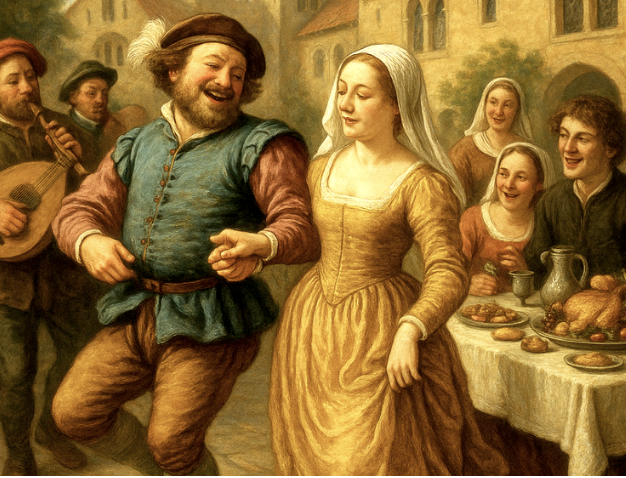

Reflective Commentary (2025)
The following essay was written in 2014 for one of my earliest doctoral courses at Faulkner University. Dr. Robert Woods led the course titled “Introduction to Human Letters."
An Evaluative Inquiry into the Life of the Modern Liberal Individual
Leisure and festivity together form the foundation of life in the liberal arts. This will be evaluated based on a set of criteria, careful judgment against the criteria, and supporting evidence.
The first criterion is that the liberal individual cannot be solely a worker, to the exclusion of leisure and festivity, whilst still sustaining a life in the liberal arts. To be solely a worker means to live as if work is the only purpose of life, neglecting the vital human experiences of leisure and festivity. The modern liberal individual (ἄνθρωπος, meaning ‘human being’ throughout this essay) has succeeded in shaping a life that incorporates both leisure and festivity. Therefore, the modern liberal individual fulfils the first criterion of liberal learning.
Pieper enquires whether an individual can "develop to the full as a functionary and a 'worker' and nothing else; can a full human existence be contained within an exclusively workaday existence? Stated differently and translated back into our terms: is there such a thing as a liberal art?" (Leisure: The Basis of Culture, 43). As evidence, this author proposes that the modern liberal individual is
(1) able to make decisions embracing leisure and festivity, owing to society's shift away from an agrarian and industrial working environment;
(2) possesses greater disposable income in this generation than was available in the past; and
(3) has access to resources more readily than at any previous point in human history.
The second criterion is that the liberal individual desires to live in leisure and festivity in such a manner as to sustain oneself throughout a life in the liberal arts. Aristotle, in his Nicomachean Ethics, stated that a person "wishes himself to live and be preserved, and especially the element by virtue of which he thinks" (Book IX, Chapter 4, 502).
Modern man, as a thinking being, not only wishes to be preserved intellectually but indeed lives in such a manner. Therefore, the modern liberal individual satisfies the second criterion of liberal learning. As evidence for this conclusion, the author observes that the modern liberal individual
(1) possesses the desire to live,
(2) has the intellect for self-preservation, and
(3) is, fundamentally, a thinking animal.
The active mind is the thinking mind; the activity of thought lays the foundation for all human achievement, including the pursuit of liberal studies.
The third criterion is that the liberal individual accumulates subjects during leisure and festivity to be explored in contemplation throughout life in the liberal arts. Aristotle observes that "memories of his past acts are delightful" (ibid., 502), and "his mind is well stored too with subjects of contemplation" (ibid., 502). Leisure and festivity serve as conduits which allow individuals to contemplate subjects within the liberal arts. Pieper concluded that "man craves by nature to enter the 'other world'" (In Tune with the World, 58). Put differently, to indulge the storehouse of the mind, the liberal arts, is to live and to be preserved by one’s thinking capacity.
The modern liberal individual
(1) has information readily available at the touch of a button through resources such as the Google search engine (i.e., data);
(2) possesses a greater capacity to explore ideas, owing to technology which extends the storehouse of the mind for contemplating the liberal arts; and
(3) benefits from the combined resources of information and technology, which now serve as tools of liberal learning at a calibre unknown to any previous generation of liberal thinkers.
The author of this evaluative essay concludes, based on these criteria, that leisure and festivity together constitute the foundation of life in the liberal arts.
Bibliography
Aristotle. Nicomachean Ethics. Translated by H. Rackham. Cambridge, MA: Harvard University Press, 1934.
Pieper, Josef. Leisure: The Basis of Culture. Translated by Alexander Dru. New York: Pantheon Books, 1952.
Pieper, Josef. In Tune with the World: A Theory of Festivity. Translated by Richard and Clara Winston. Chicago: Franciscan Herald Press, 1963.

